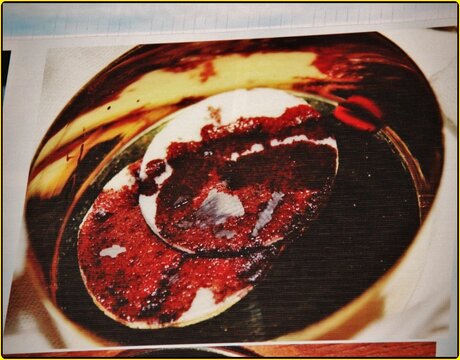Divine Retreat Centre UK – Official Website

Transcribed talks – Lessons from the Life of St Joseph – Fr Joseph Edattu VC
March 19, 2021
Transcribed talks on Mother Mary – How did Mother Mary overcome her faith crisis? – Fr Joseph Edattu VC
March 19, 2021In our journey of faith, we may have interacted with many Christians who have said that in order to keep the Lord’s Day holy, there is no need to attend church to worship God, even for Sunday mass. They seem to be credible, because they give scriptural references such as, God is everywhere, loves us and is always listening to us and that we are members of Christ’s body/temples of the Holy Spirit. Therefore a physical temple, like the church, is just a building, but God lives in us instead! Some even misconstrue, that people are brain washed to attend at church, because in truth, the church needs tithes.
This has confused some Catholics, to misunderstand the sacredness of attending church, where the Eucharist is not only present but more importantly, received. Thus they occasionally skip the obligation mass and replace it with a prayer to God. What is more worrisome is that there is a feeling that, there is no difference worshiping at church or in home (which makes our spirit lax).
While many of us may completely disagree with this, how convinced are we, that Jesus is alive and present in the flesh – in the Eucharist? Do we realize that people who persuasively use scripture to give wrong teachings – do not really know their scripture as thoroughly, as they think they do?! Or were we successful in conveying to them that, it is precisely for scriptural based reasons, we hold firm, to the Eucharist as the real living presence of Jesus – just as how He was present 2,000 years ago?
In the period of the pandemic, while the rest of the faithful, are expected to attend obligation mass, people of a certain age or health category, have been given a dispensation by the Church, to attend the online mass, instead. Due to the Faithfull’s inability to receive Christ’s body, this is not the preferred way, but it is done for people’s safety. Yet, of the category who is to attend, many attend online, even after feeling secure that their local church has enough precautionary measures of social distancing, temperature checks and sanitization, as compared to other places (which are visited for leisure). They prefer online, because they see no difference between it and an in-person attendance, when it comes to the presence of Jesus.
Many scriptural passages in the Bible, directly and indirectly exhort us about the presence of Jesus in the Eucharist. The Eucharist is ABSOLUTELY NOT A SYMBOL of the flesh and blood of Christ, and the expounded scripture below, is to assist in clearing such misconceptions. We will see this starting with the Old Testament, to the life of Jesus in the New Testament, ending with the letters of St. Paul, who upholds this truth.
- The Passover in the Old Testament, started with the journey of the Israelites into the Promised Land. God had mandated all Israelites to celebrate the Passover, in order to be saved and be released in to freedom. Firstly, the blood of the lamb, would be smeared on the doorpost, so that the angel of death would pass over that house, and the lives of those Israelites would be spared (while destroying the first born Egyptians). Yet, the deeper meaning for all believers today, is that because of the blood of the Lamb (Jesus Christ), we are shielded and saved from eternal death.
Now, if God had only meant for the lamb’s blood on the door post, to signal to the angel of death, to pass over that house, this itself was enough to save them from death, have their enemies killed and later that night, begin their escape into the wilderness.
Why did He insist on them needing to eat the flesh of the innocent unblemished lamb – in order to reach the Promised Land? Because, it was a foreshadow.
Now, besides asking for the Passover meal to be consumed that exodus night, He stated that a memorial Passover meal, must be celebrated forever – why? Because in doing so, we were not only celebrating the victory of the first exodus but preparing for the real ultimate victory. The real reason that the Passover had to consist of consuming a lamb’s sacrifice, was because a perfect lamb (of God) would replace a mere lamb (that could not even equate to a human life, let alone a human soul). Consuming, that Lamb of God, would lead us to the real Promised Land – heaven!
- 2. (Mathew 5:17) – Do not think that I have come to abolish the Law or the Prophets; I have not come to abolish them but to fulfill them. For truly I tell you, until heaven and earth disappear, not the smallest letter, not the least stroke of a pen, will by any means disappear from the Law until everything is accomplished.
Being law abiding, Jesus regularly celebrated the Passover meal every year, as mandated by Moses.
Exodus 12:14 – This day shall be for you a memorial day, and you shall keep it as a feast to the Lord; throughout your generations, as a statute forever, you shall keep it as a feast.
Per Exodus 12, every Passover memorial meal also required, the sacrifice of a one year old male unblemished lamb, which had to be consumed by those participating in the meal.
So where was the lamb for Jesus and the apostles to consume on that Passover Maundy Thursday night? What we come across is only, bread and wine! Was Jesus not following the law of His Father, given through Moses?
Of course He did; contrary to what a bewildered Jew might have thought (and per Mathew 5:17, above), He truly kept the law! Since He knew He had to provide for a Lamb, He did, but only this time, it was to be Himself!
With transubstantiation, though the bread and wine, were changed to His body and blood that Maundy Thursday night, it did not miraculously taste like flesh and blood.
So too, like Maundy Thursday, though we partake in the real flesh and blood of Jesus the Lamb, it continues to taste like bread and wine. We do not need for it to taste like meat, to believe it is Jesus’ flesh. So if the apostles, had the faith to believe that bread was the living Jesus and passed on to our priests, the power to transubstantiate, we must believe in the Eucharist, with that same conviction as they did!
Moving on to the New Testament’s Gospel of John chapter 6
- 3. Verse 35 -Then Jesus declared, “I am the bread of life…
Verse 51-54, 56-57 -I am the living bread that came down from heaven. Whoever eats this bread will live forever. This bread is my flesh, which I will give for the life of the world.” Then the Jews began to argue sharply among themselves, “How can this man give us his flesh to eat?”
So Jesus said to them, “Truly, truly, I tell you, unless you eat the flesh and drink the blood of the Son of Man, you have no life in you. Whoever eats My flesh and drinks My blood has eternal life, and I will raise him up at the last day. Whoever eats My flesh and drinks My blood remains in Me, and I in him. Just as the living Father sent Me and I live because of the Father, so also the one who feeds on Me will live because of Me.
Firstly, Jesus explained to His other disciples along with the twelve apostles, that, He is the bread of life. He goes on to explain that the bread is actually His flesh; nowhere did He say the bread represents His flesh. **He was absolutely not willing to mince words – because He was literal and likewise He expects us to take this literally!
To drive it in further, at least four times thereafter (as, italicized above), He commands that they are to eat of His flesh, to be saved!
When He told them to eat the bread and explained that it equaled to the physical consumption of His flesh – they thoroughly understood this point (yet some of us struggle to believe that this is what He meant!).
How do we know they understood this? Because they retaliated, asking, how can He give them His flesh to eat (since they felt it insane that a man would literally give His flesh for consumption).
Verse 60 & 67 – On hearing it, many of his disciples said, “This is a hard teaching. Who can accept it?”
From this time many of his disciples turned back and no longer followed him.
**Note, when His other disciples left Him – He never tried to stop them. Why? It was because He was serious about this teaching!
Being God, He knew that His other disciples were completely puzzled and offended because He advised them to eat His flesh. If He really did not mean that the bread was His real flesh, He would have tried to clarify that He was talking about it being symbolic of His flesh. Being God and reading their minds, why would He purposely allow them to leave (after all they were His disciples, who once followed Him and not just bystanders)? In other words, because He knew they refused to accept the consumption of His flesh, He let them go.
NB: If you were present at that moment, would you now think He just meant bread to symbolize His flesh, as some Christians do?
Thereafter, He turned to His disciples and said the following:
Verses 67 “So he asked the twelve disciples, “And you-would you also like to leave?”
It is obvious that He is so solemn about this matter, because He went on to even check with His apostles, if they wanted to leave in the event that they were unwilling to accept this.
In truth, if they were not willing to accept the very crux of the salvation He offered us (i.e. the sacrifice of the Eucharistic Lord), it would have been better that at this point, they left Him too – because they were rejecting His very plan of salvation, for which He came!
- 4. Leviticus chapter 17 verse 13 to 14 – “And if any Israelite or any stranger who resides among them hunts down an animal or a bird that may be eaten, he shall pour out its blood and cover it with earth. For the life of all flesh – its blood is its life. Therefore I say to the Israelite people: You shall not partake of the blood of any flesh, for the life of all flesh is its blood. Anyone who partakes of it shall be cut off”
Since God Himself explained that a living creature’s life is in its blood, this is why the Jews were not permitted to consume the blood of a dead animal.
Yet Jesus insists on His blood being consumed in the Eucharist – why? If God explains that blood has life in it, then His own blood has the life of immortality, which will cause us to live forever!
Though God strictly prohibits consumption of the blood of a (mere inferior) animal, yet – He COMMANDS us to consume His Son’s blood (which is incomparably superior).
How much more clarity is needed, to accept that the Eucharistic wine, is His actual blood?
- 5. John 6:55 – “For my flesh is real food and my blood is real drink.”
John 35 -Then Jesus declared, “I am the bread of life. Whoever comes to me will never go hungry, and whoever believes in me will never be thirsty
We note that Jesus was not only satisfied in stating that we have to eat His flesh and drink His blood. He further explained that this is because His flesh and blood, are the ultimate food and drink! Natural food is secondary, as it only sustains human life, which will eventually end, but the flesh of Jesus, is a meal that supersedes all others, as it allows us to partake in His eternal life.
So if we were only consuming physical bread, this is only natural food that does not give us immortality, but what we are consuming, is the real flesh of the Son of God!
- 6. John 6:51 “….This bread is my flesh, which I will give for the life of the world.”
God never intended for us to act as cannibals, by eating off the flesh of Jesus, as He was taken down from the Cross after His crucifixion, on Good Friday. At the same time, when He said “this bread is my flesh, which I will give for the life of the world,” He was literal in us consuming His body. So how was He to achieve this?
Through transubstantiation, via the Holy Spirit (a power which was also passed on to the apostles and priests).
The wisdom of doing this is because, just as He said “it was for the life of the world,” the Eucharist, was not limited to the Apostles on Maundy Thursday, but for all Christians, down to the future generations and until the end of time, who are to be saved. This is why we have to firmly believe the Eucharist we consume is the living Jesus, who is with us till the end of age.
Progressing to the letters of St. Paul, he clears such doubts and provides strong confirmations
- 7. (1 Corinthians 11:27-30) – Therefore whoever eats the bread or drinks the cup of the Lord in an unworthy way, shall be guilty of the body and the blood of the Lord. But a person must examine himself, and in so doing he is to eat of the bread and drink of the cup. For the one who eats and drinks, eats and drinks judgment to himself if he does not properly recognize the body. For this reason many among you are weak and sick, and a number are asleep.
Paul warns people about consuming the Eucharist in an unworthy manner for the following reasons (all of which proves Jesus’ actual presence):
- Firstly we will be directly sinning against the body and blood of Christ, meaning, the Eucharist is the living Christ.
- Referring once again to the above verse, he further explains that, the Eucharist is so sacred, THAT IF YOU DO NOT DISCERN IT TO BE THE LIVING CHRIST, YOU BRING JUDGMENT UPON YOURSELF.
- This is why we also have to be in a worthy state; for only if you believe it is really Jesus, will you bother to ensure you are in a worthy state. He explains that the kind of judgment we bring upon ourselves, equates to consequences like getting sick or even dying.
An example from scripture:
John 13: 10 -11 “…Now you are clean—but that isn’t true of everyone here.” For Jesus knew who would betray him. That is what he meant when he said, “Not all of you are clean.”
On Maundy Thursday night, before beginning with the Sacred meal of consuming the body of Christ, Jesus proceeded to wash the feet of the apostles (much like us using holy water to sign ourselves before entering church). One of the reasons He did this was to perform a final “cleansing act” with water, before they consumed the Lord’s Supper.
As He spoke (ref Jn 13:10-11) about Judas, He saw the dangerous state of Judas’ soul who would receive the body of Christ, is such a desecrating manner.
This is because unlike the 11 apostles, Judas refused to internalize the teachings of Jesus, which would have cleansed his soul, to receive the Eucharist, hence he received it unworthily.
Through St. Paul’s explanation, we now understand why this created an adverse effect. Here satan, the angel of darkness took over, steering him to perform such a great diabolic act (of betrayal), which brought him deep discouragement and depression, that Judas could not forgive himself and ask God for pardon, but committed suicide.
When the lamb’s blood was smeared on the door, in the Old Testament, it was so that the angel of death would not knock down that family with death, but here receiving Jesus unworthily, caused the angel of darkness to finally lead Judas to his death!
It is the extreme opposite of what should happen to any cleansed soul when they consume the Eucharist, because it is Jesus’ body which always blesses us. For not only does it give us eternal life, but also brings healing to our mind and body.
- 8. (James 5:14) – Is anyone sick? He should call for the elders of the church and they should pray over him and pour a little oil upon him, calling on the Lord to heal him. And their prayer, if offered in faith, will heal him, for the Lord will make him well; and if his sickness was caused by some sin, the Lord will forgive him.
In reference above, we can see from the scripture passage that, primarily holy oil has been used as a sacramental, to anoint and heal believers. In addition, there is holy water, holy salt and sacred relics.
So sacramentals are also used to heal, protect and bless God’s children. Secondly, it is also used to administer certain sacraments.
The Catechism of the Catholic Church (1670) has this to say about sacramentals:
“Sacramentals do not confer the grace of the Holy Spirit in the way that the sacraments do, but by the Church’s prayer, they prepare us to receive grace and dispose us to cooperate with it.”
In order to receive any sort of healing, our soul should be reconciled to God, but even if it is not, there is no scriptural warning about the consequences of anointing oneself with these sacramentals.
So can one say that holy oil, holy water, holy salt, the Eucharistic bread and wine are all the same – as these are all holy objects?
By no means! Through St. Paul, we see a strong distinction between the two categories; sacrament (of the Eucharist) and sacramentals! The sacraments and especially that of the Eucharist is exceedingly sacred – because it is not an object blessed by God, but because IT IS GOD Himself ~ a very big difference!
Note: As sacramentals are used to administer some sacraments, in such cases, it is necessary to ensure being in a proper disposed state.
- 9. (John 6:56-57) – Whoever eats my flesh and drinks my blood remains in me, and I in them. Just as the living Father sent me and I live because of the Father, so the one who feeds on me will live because of me.
This gospel verse is further explained by St. Paul: 1Corinthians 12:13 – Each of us is a part of the one body of Christ. So though we are many, Jesus invites all of us into one union (as the Catholic Church) with His body, but firstly we have to remain in Him. How? In order to embrace the God whom we want to unite with, we need to consume the real flesh (not something signifying it, but the actual substance).
We are the bride of Christ and if the bride and groom are one, Christ who died for the church, died to unite us with Him, through a union with His flesh and blood which had to be sacrificed and consumed.
Final reflection:
In Jesus’ lifetime, there were two categories of people who believed in Him; the disciples and the apostles. However, from the above scripture, we know that some of them left Him, when they were told about the Eucharist. Therefore if we as Christians, start insisting that the bread and wine is only a representation of the body and blood of Christ, are we not exactly like those disciples, who left Jesus, because they refuted that He could give them His flesh consume? What is worse is, this also caused them to leave behind their salvation!
Should our faith be like theirs or like the apostles (the future Catholics) instead, who did great works because they stayed on and believed (though they did not always understand)?
Consider the great sacrifice of Jesus in dying for you. Now, for your own salvation, if you had the choice between consuming bread which is the actual flesh of Christ or a kind of bread that only represents Christ, which one would you, choose?
Also put into perspective that, Christ said He wants you to remain in Him and that we are the bride of Christ.
So should we be joined to a piece of bread (the source of which is a plant) or to the miraculous transubstantiated Body of Christ?
If you wish to believe and consume the real body of Christ, three things are needed:
- Physical participation at mass, faithfully.
- Belief in the power of transubstantiation, handed down by our forefathers i.e. the apostles to their lineage of priests (ministers).
- Belief in the minister who states that the bread (they are privileged to bless) is the actual body of Christ and not one who states that the bread they blessed, is only symbolic of Christ.
Let us be attentive to what the Eucharist is, and moreso, who it is – the person of Jesus Christ!




